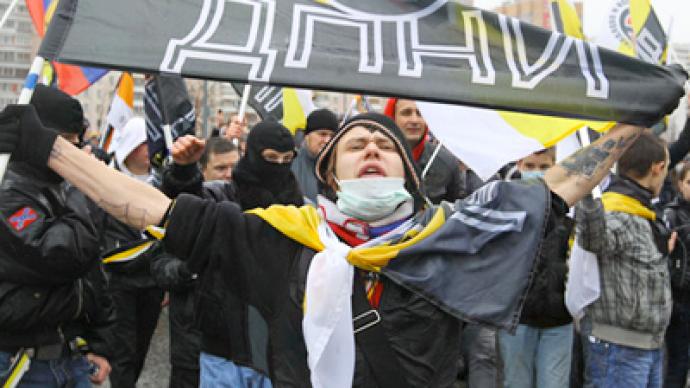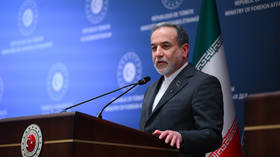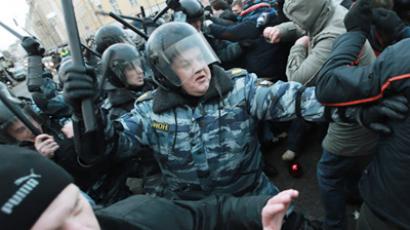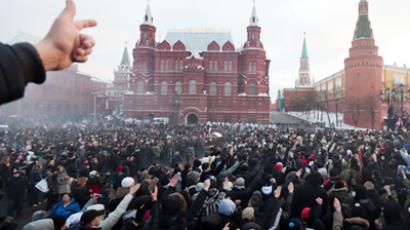Court bans Russian anti-illegal immigration movement

Moscow City Court has banned the Movement Against Illegal Immigration (DPNI), accusing its leaders of extremist activities.
In February, Moscow Prosecutor’s Office shut down the movement on the grounds of extremism, but the court had to take the final decision. Prosecutors said the DPNI leaders had repeatedly taken part in events “aimed at igniting interethnic hatred.” Moscow City Court last week refused to dismiss the prosecutors’ lawsuit to ban the movement and transfer it to the Supreme Court. Earlier, courts passed four sentences against members of DPNI regional organizations and its former leader Aleksandr Belov for inciting extremism. Moscow police said the organization was partly responsible for mass riots in Manezhnaya Square in December 2010 when football fans clashed with police in the center of Moscow. Belov warned that banning the movement may lead to the radicalization of nationalist groups that in this case will be beyond somebody’s control. The movement was established in 2002 as a reaction to cases of ethnic violence between Moscow residents and immigrants from Central Asia and the South Caucasus. The DPNI managed to organize a number of nationalist rallies in Moscow and Russia’s regions and took part in the annual Russian March. In 2006, the DPNI leadership supported anti-illegal immigration rallies in the Russian city of Kondopoga after a fight between locals and Chechens in which two ethnic Russians were killed. Later that year, the movement’s members were involved in inter-ethnic fighting with Caucasian ethnic groups that led to dozens of arrests. The movement was also repeatedly accused of forming armed groups to defend Slavic Russians against “aggressive actions of criminal migrants.” In January this year, the leader of the DPNI’s Moscow regional organization was put on probation for his participation in beating citizens of Tajikistan, one of whom died from his injuries. Ilya Boidakov was accused of forming an illegal group of young people that later reportedly became part of the DPNI. Investigators spoke about the group’s strong hierarchy and discipline. Boidakov, however, made a deal with the investigation and managed to avoid a more serious punishment. According to Aleksandr Verkhovsky, head of the SOVA human rights center, there are organizations more extremist than the DPNI. But he welcomed the decision to ban the movement nevertheless. “It seems to me that an organization that is so closely connected with violence should not be legal,” he told Interfax. “It's not about what they say, it's about what they do.” At the same time, Verkhovsky believes that the “underground component” is intensifying in the radical nationalist movements because of increasing pressure on their activists. Russia’s Federal Migration Service has also supported the ban. “We are trying to build a constructive dialogue with all public organizations and faiths,” the service’s press secretary Konstantin Poltoranin said. “But we did not see any constructive position in the activities of the [DPNI] organization.” Nationalists are preparing their answer to the court’s decisions. Belov told journalists on Monday he was ready to take part in a new “interesting project” that could unite scattered groups. He described the DPNI as an organization that tried to “play with the authorities according to the rules.” Head of the Federal Migration Service Konstantin Romodanovsky, however, said earlier this month that it is necessary to fight illegal immigration, but there was “no signal” from the DPNI about how to solve the problem.














